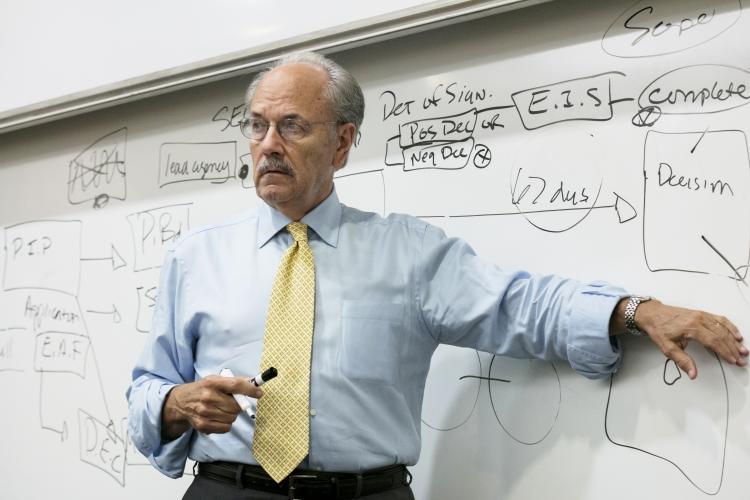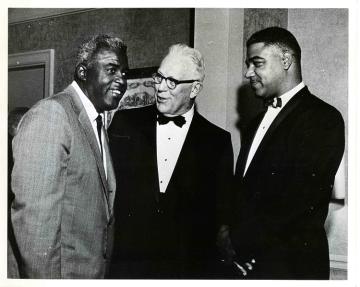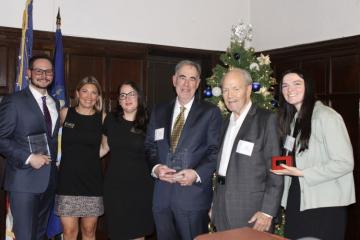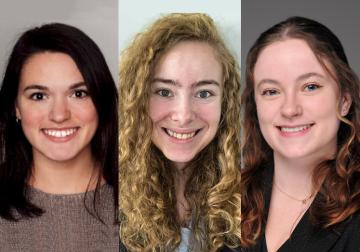The Land Use Law Center proves that Dillon’s Rule is dead

The Land Use Law Center has always had a unique and successful academic model and integral to that model is immersing students in the innovative work of the Center. Recently, Professor Nolon and a group of Haub Law students spent three semesters studying, researching, analyzing, and describing the relevant law of the 50 states as regards Dillon’s Rule. Professor Nolon notes that each of the students “made critical contributions” to this project. The culmination of the hard work is the article Death of Dillon’s Rule: Local Autonomy to Control Land Use, which will be published in the Journal of Land Use and Environmental Law at Florida State University.
Professor Nolon notes that, “for years, I have tried to get academics to pay attention to what we see in the field: that local governments are exercising their land use powers broadly to respond to emerging problems such as environmental degradation, unaffordable housing, unsustainable development, climate change, and, now, the pandemic. The general response of many academics has been to claim that municipalities are governments of limited legal authority and that their powers are to be narrowly construed by the courts. These views are shaped by Dillon’s Rule which was articulated by John Dillon, an Iowa Supreme Court Judge, in 1868. Dillon went on to influence courts by writing a popular treatise on municipal law that was influential among municipal attorneys and academics.”
Together, Professor Nolon and the students “proved that 40 states have repudiated Dillon’s Rule of narrow interpretation of municipal powers regarding land use control. This flies in the face of the general understanding of municipal land use powers and is a major contribution to the literature. The effect of the Rule is to discourage proactive local control of sprawl, energy waste, climate change, and now the effects of the pandemic; we have frightened away Dillon’s ghost and liberated municipal lawyers and officials to act boldly as they confront the existential threats they face.” Vicky Gannon, Reference Librarian, worked with each of the students on the team to find provisions in state constitutions, statutes, and case law and to document their findings.
The team of Haub Law students were supervised by student Emma Alvarez Campbell (Class of 2021). Emma notes that during the summer of 2019, she was an extern at the Land Use Law Center and was paired up with Professor Nolon. “Professor Nolon had a suspicion that Dillon's Rule, which heavily constrains the power of local governments, was dying. In the previous summer one of the interns had done some research on Dillon's Rule, so I think it was something that was on his mind for quite a while. I basically took his inkling and ran with it. Throughout the summer, I researched where Dillon's Rule stood throughout the country. The research and writing continued through the spring of 2020 when we gathered a team of students to check over and add to the research and complete the states I had not gotten to yet. In this final round of research, the team was instrumental in going through each state thoroughly. Professor Nolon was able to conclude that 40 states have repealed Dillon’s Rule in the land use context through renunciation in their constitutions, acts of their legislatures, or the decisions of their courts. I believe the goal is to show that local governments have flexibility in the way they plan, which is especially important in the wake of climate change. Basically, there is a lot that can be done at the local level and we want to encourage that. Based on all of the research, Professor Nolon’s research assistant, Jessica Roberts (Class of 2022), assisted him to put the research onto paper and submit the article for publication.”
Emma describes her experience working with Professor Nolon and the team of students as wonderful. “The most significant aspect for me was Professor Nolon’s trust. His encouragement and the praise he awarded my work gave me so much confidence. Also, Professor Nolon's love for his work is contagious. He makes everyone around him better and more passionate about the work. Also, seeing how much work goes into a research project from start to finish was eye opening. I feel grateful to have seen this idea of his come to fruition, especially because it has the potential to greatly impact how local governments plan moving forward.”
Professor Nolon notes that part of the Land Use Law Center’s model is to take students into the field with them, identify legal opportunities and barriers, and conduct research and identify solutions. “Students write reports that demonstrate the understanding they have of current legal issues and the impressive level of depth they can work at to solve practical problems. This work and the descriptions of their work, along with their writing samples, are instrumental in being hired by firms, companies, NGOs, and governmental agencies. And, notably, the professor benefits as well. I could not research the law so thoroughly or write the resulting articles and books of practical substance without this level of student support. As students graduate, we keep track of them and continue to learn from their engagement and growth in the practice of law. The relationships we form with our students are life-long and mutually beneficial.”



